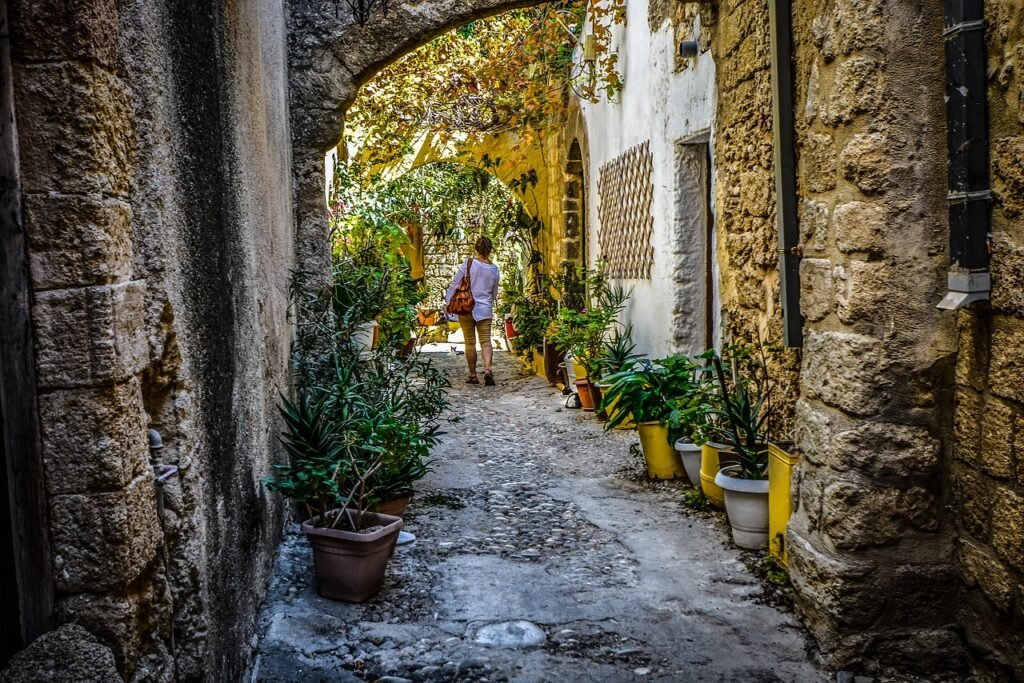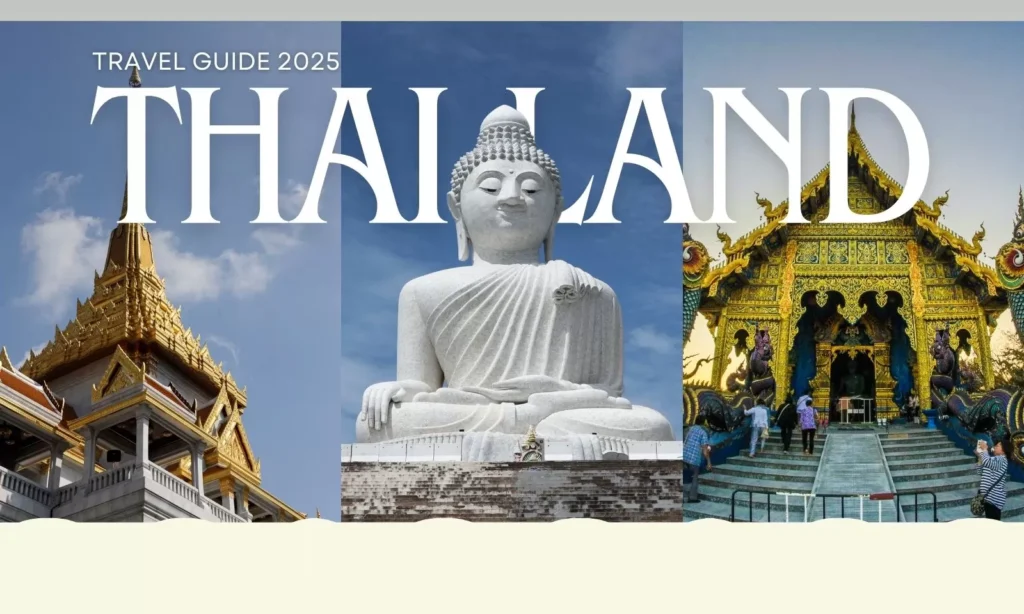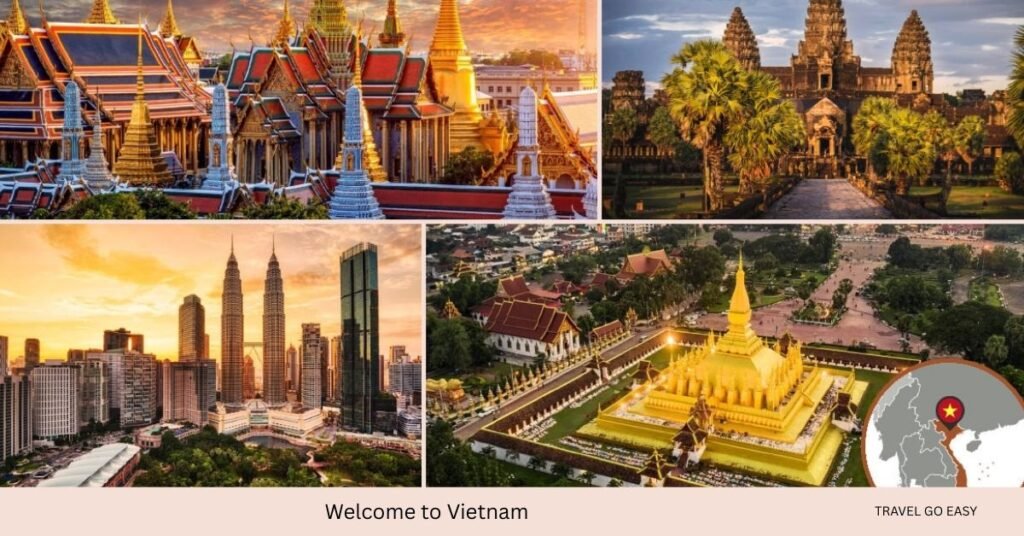Physical Address
304 North Cardinal St.
Dorchester Center, MA 02124
Physical Address
304 North Cardinal St.
Dorchester Center, MA 02124

The Ultimate Solo Travel Guide | Resources, Safety Tips, and Budget-Friendly Adventures for Independent Explorers

Solo Travel
Meta Description: Discover essential solo travel resources, safety tips, and budget-friendly destinations. Find cheap flights and hotels that fit your budget while exploring hidden gems and unfamiliar places safely.
Solo travel isn’t just about visiting places alone; it’s about uncovering your secret sanctuary within yourself while exploring the world’s most captivating destinations. Whether you’re dreaming of family vacation ideas for future trips or seeking those undiscovered gems that only reveal themselves to the bold and curious, this comprehensive guide will equip you with everything needed to embark on your solo adventure safely and affordably.
The beauty of independent travel lies in its complete freedom. You wake up when you want, eat what catches your fancy, and explore undiscovered beauty at your own pace. But this freedom comes with responsibility, particularly when it comes to safety and smart budgeting. Throughout my years of solo exploration, I’ve learned that the most memorable adventures happen when you’re prepared, informed, and connected to reliable resources.
At Travel Go Easy, we understand that solo travelers need specialized support. That’s why we’ve created this ultimate guide to help you navigate the exciting world of independent travel, from finding cheap flights and hotels that fit your budget to discovering locally favored spots that will make your journey truly unforgettable.
The modern solo traveler’s smartphone has become their most trusted companion, packed with applications that can transform any challenging situation into a manageable one. During my recent solo adventure through Southeast Asia, I discovered how crucial these digital resources became during unexpected moments.
Navigation and Maps: Google Maps Offline remains your lifeline when cellular service becomes unreliable. Download maps of your destination before arrival, and always carry a portable charger. Citymapper works brilliantly in major cities, providing real-time public transportation updates that can save both time and money.
Translation Tools: Google Translate’s camera function proved invaluable when navigating menus in local restaurants. The conversation feature helps break language barriers, creating authentic connections with locals who often become your best source of insider recommendations.
Emergency Contacts and Information: Store emergency numbers in your phone, including local police, your embassy, and your accommodation. Share your itinerary with trusted friends or family members, and check in regularly. Apps like Find My Friends or Life360 can provide peace of mind to loved ones back home.
Creating connections before you travel can transform your entire experience. Join Facebook groups specific to your destination, where seasoned travelers share current tips about everything from transportation strikes to hidden restaurant gems. These communities often organize meetups, turning solo travel into opportunities for meaningful connections.
Online Communities: Reddit‘s r/solotravel community offers real-time advice from fellow adventurers. Nomad List connects digital nomads worldwide, while Meetup.com helps you find local events and activities in your destination.
Professional Networks: LinkedIn can be surprisingly useful for solo travelers. Connect with professionals in your destination city who might offer insights into local culture, business customs, or even dining recommendations.
Preparation isn’t about paranoia; it’s about confidence. Create a comprehensive emergency kit that includes copies of important documents stored securely in cloud storage. I always carry a small card with essential information written in the local language, including my accommodation address and any medical conditions.
Travel Insurance: Invest in comprehensive travel insurance that covers medical emergencies, trip cancellations, and lost belongings. World Nomads and SafetyWing offer excellent coverage specifically designed for solo travelers.
Banking and Financial Security: Notify your bank about travel plans, carry multiple payment methods, and keep some cash in different locations. Consider opening a travel-friendly bank account with no international fees.
Safety isn’t about limiting your adventure; it’s about maximizing it intelligently. The most important lesson I learned during my solo travels across Europe was that awareness, not fear, should guide your decisions. Your intuition becomes your most valuable asset when traveling alone.
Trust Your Instincts: If a situation feels uncomfortable, remove yourself immediately. That gnawing feeling in your stomach isn’t paranoia; it’s your subconscious processing information faster than your conscious mind. I once left a hostel within hours of checking in because something felt off, and later learned from other travelers that my instincts were correct.
Stay Connected: Establish regular check-in schedules with friends or family. Share your location through smartphone apps, and always inform someone about your daily plans. This isn’t just about safety; it’s about having someone celebrate your victories and support you through challenges.
Situational Awareness: Keep your head up, observe your surroundings, and avoid appearing lost or confused in public. Walk with purpose, even when you’re completely turned around. Duck into a café or shop to reorient yourself rather than standing on street corners studying maps.
Choosing safe accommodation extends beyond reading reviews. Upon arrival, always inspect emergency exits, locate the front desk, and understand the building’s security measures. I prefer accommodations with 24-hour reception and clear evacuation procedures.
Research Neighborhoods: Use Google Street View to virtually explore your accommodation’s surroundings during different times of day. Check local crime statistics and recent traveler reports about the area’s safety.
Secure Your Belongings: Invest in a portable door lock and travel-sized safe for valuables. Never leave important documents, electronics, or significant cash in your room, regardless of how secure it appears.
Public transportation safety varies dramatically between destinations. Research local transportation apps, understand payment systems, and identify safe waiting areas. Always have backup transportation options, especially late at night.
Ride-Sharing Services: When using services like Uber or Lyft, always verify the driver’s identity and vehicle details before entering. Share your ride information with trusted contacts, and sit behind the driver when possible.
Walking Safety: Stick to well-lit, populated areas, especially after dark. Learn basic phrases in the local language for asking directions or seeking help. Carry a whistle or personal alarm for emergencies.
For convenient and safe airport transfers, consider booking through Travel Go Easy’s transfer service, which ensures reliable transportation from the moment you land.
The world is filled with incredible destinations where solo travelers can stretch their budgets without compromising on experience. These undiscovered gems offer authentic cultural immersion, stunning landscapes, and welcoming communities perfect for independent exploration.
Southeast Asia: The Solo Traveler’s Paradise
Thailand remains the gold standard for first-time solo travelers. The combination of excellent infrastructure, friendly locals, and affordable costs creates an ideal environment for building confidence. From the bustling streets of Bangkok to the serene beaches of Koh Phi Phi, Thailand offers diverse experiences within every budget range.

Welcome to Thailand
Vietnam captivates with its rich history, incredible cuisine, and dramatic landscapes. The cost of living allows budget travelers to experience luxury occasionally, while the well-established backpacker trail ensures you’ll never feel isolated. Street food costs less than $2 per meal, and accommodation ranges from $5 hostels to boutique hotels under $50.

Welcome to Vietnam
Eastern Europe: Where History Meets Affordability
Budapest, Hungary, represents everything wonderful about solo travel in Eastern Europe. The city’s thermal baths provide perfect relaxation after days of exploration, while the vibrant nightlife scene welcomes solo travelers with open arms. Accommodation costs remain significantly lower than Western Europe, and the city’s compact size makes walking the preferred transportation method.

Welcome to Budapest
Prague, Czech Republic, offers fairy-tale architecture and world-class beer at prices that won’t devastate your budget. The city’s extensive public transportation system connects all major attractions, and the local custom of communal dining makes it easy to meet fellow travelers.

Prague
Central America: Adventure Without Breaking the Bank
Guatemala provides incredible value for adventurous solo travelers. The ancient ruins of Tikal, the colonial charm of Antigua, and the volcanic landscapes of Lake Atitlán create diverse experiences within a compact geography. Local chicken buses, while initially intimidating, offer authentic cultural experiences and transportation costs under $1 per hour.

Guatemala
Every destination has its tourist traps and its genuine treasures. The key to meaningful solo travel lies in discovering those locally favored spots that provide authentic experiences away from crowds.
Hidden Neighborhoods: Research residential areas where locals live and work. These neighborhoods often contain the best restaurants, most affordable markets, and most genuine cultural experiences. Walk through these areas during different times of day to understand local rhythms.
Local Markets and Food Scenes: Skip the tourist restaurants and follow locals to street food vendors and neighborhood eateries. Not only will you save money, but you’ll also experience authentic flavors and have opportunities for genuine cultural exchange.
For inspiration on discovering more unique destinations, explore our Hidden Gems section, which features unfamiliar places that offer extraordinary experiences for solo travelers.
Packing for solo travel requires a different approach than family vacations. Every item must serve multiple purposes, and space efficiency becomes crucial when you’re carrying everything yourself. Through years of solo adventures, I’ve refined my packing strategy to include only the most essential items while maintaining comfort and safety.
The Foundation: Choosing the Right Luggage
Your luggage becomes your mobile home, so invest in quality pieces that can withstand various transportation methods. A wheeled suitcase works well for urban destinations with smooth pavements, while a backpack provides flexibility for outdoor adventures or destinations with challenging terrain.
Clothing Strategy: Pack versatile pieces that can be mixed, matched, and layered. Choose wrinkle-resistant fabrics in neutral colors that hide stains and coordinate easily. Include one dressy outfit for unexpected opportunities, and always pack one extra day’s worth of clothing beyond your planned trip length.
Safety and Security Items: A money belt or hidden pouch keeps valuables secure while allowing easy access. Portable door locks, luggage locks, and a small flashlight address security concerns. Include copies of important documents stored separately from originals.
Modern solo travelers depend heavily on technology for navigation, communication, and entertainment. However, technology also creates vulnerabilities that require careful management.
Power Management: Carry portable chargers for all devices, and include universal adapters that work in your destination. Solar chargers provide backup power for outdoor adventures, while power banks ensure your phone stays charged during long travel days.
Communication Tools: Download offline maps, translation apps, and currency converters before departure. Include emergency contact information in local languages, and research local SIM card options for affordable internet access.
Entertainment and Comfort: Long travel days become more enjoyable with noise-canceling headphones, downloaded movies, and e-books. A travel pillow and eye mask transform uncomfortable transportation into opportunities for rest.
Solo travelers often experience diverse climates and activities within single trips. Strategic packing allows for flexibility without overpacking.
Layering System: Base layers, insulating layers, and waterproof outer shells can adapt to various weather conditions. Merino wool base layers regulate temperature and resist odors, making them ideal for extended wear during travel days.
Footwear Choices: Limit yourself to three pairs maximum: comfortable walking shoes, sandals or flip-flops, and one pair appropriate for dressy occasions. Ensure walking shoes are broken in before travel to avoid blisters during exploration.
Activity-Specific Gear: Research your destination’s activities and pack accordingly. Beach destinations require swimwear and sun protection, while hiking areas need appropriate footwear and layers. However, consider purchasing activity-specific items at your destination to support local economies and reduce luggage weight.
The art of booking budget-friendly accommodations goes far beyond simply choosing the cheapest option. Smart solo travelers understand that the right accommodation can enhance their entire experience while staying within budget constraints.
Timing Your Bookings: The sweet spot for booking accommodations typically falls between 2-6 weeks before travel for domestic trips and 6-12 weeks for international destinations. However, last-minute deals can offer significant savings if you maintain flexibility with your travel dates.
Alternative Accommodation Types: Consider homestays, hostels, and guesthouses for authentic local experiences at lower costs. Many hostels now offer private rooms that provide privacy while maintaining social opportunities and budget-friendly rates.
Location Strategy: Accommodations slightly outside city centers often offer better value while maintaining easy access to attractions. Research public transportation options to ensure convenient connections, and consider walkability for exploring neighborhoods.
Modern booking platforms offer sophisticated tools for finding the best accommodation deals. Understanding how to use these tools effectively can result in significant savings.
Price Comparison Tools: Use multiple booking sites to compare prices, but always check the hotel’s direct website for potential matching or beating competitor rates. Many hotels offer best rate guarantees that include additional perks like free breakfast or Wi-Fi.
Flexible Date Searches: Most booking platforms allow date flexibility searches that show price variations across different dates. Shifting your travel dates by even a day can result in substantial savings, especially during peak seasons.
Mobile App Exclusive Deals: Many booking platforms offer exclusive mobile app deals that aren’t available on desktop versions. Download apps from major booking sites and enable notifications for flash sales and limited-time offers.
For convenient hotel bookings with competitive rates, visit Travel Go Easy’s hotel booking page, where you can find accommodations that fit every budget while ensuring quality and safety standards.
Direct communication with accommodations can often result in better rates or added value, particularly for extended stays or repeat visits.
Direct Contact Benefits: Call or email accommodations directly to inquire about unpublished rates, especially for stays longer than a week. Many family-run establishments offer discounts for direct bookings that avoid commission fees charged by booking platforms.
Value-Added Negotiations: Even when rates aren’t negotiable, request complimentary services like airport transfers, breakfast, or late checkout. These additions provide value without impacting the accommodation’s revenue significantly.
Loyalty Program Advantages: Join hotel loyalty programs even for budget accommodations. Many programs offer immediate benefits like room upgrades, free Wi-Fi, or flexible cancellation policies that provide value beyond point accumulation.
Hotel loyalty programs have evolved into sophisticated systems that can provide substantial value for solo travelers who understand how to leverage them effectively. These programs offer more than just free nights; they provide enhanced experiences and valuable perks that can transform budget travel into comfortable adventures.
Choosing the Right Program: Select loyalty programs based on your travel patterns and destinations. If you frequently visit urban areas, programs with strong city presence make sense. For international travel, consider programs with global reach and partnerships with local brands.
Maximizing Point Earning: Understanding earning structures allows you to maximize points from every stay. Many programs offer bonus points for direct bookings, mobile app usage, or completing specific activities during your stay. Some programs also offer dining and shopping partnerships that accelerate point accumulation.
Elite Status Benefits: Elite status levels provide valuable perks like room upgrades, late checkout, and bonus points that can significantly enhance your travel experience. Achieving status often requires concentrated spending within calendar years, making it ideal for frequent solo travelers.
Solo travelers often benefit more from airline loyalty programs than group travelers because they have complete control over booking decisions and can optimize for maximum point earning.
Route Optimization: Plan your travel routes to maximize earning potential on your preferred airline. Sometimes paying slightly more for a preferred carrier’s direct flight results in better long-term value through point accumulation and elite status progress.
Credit Card Strategies: Airline credit cards can accelerate point earning through everyday spending and often provide valuable perks like free checked bags, priority boarding, and lounge access. Calculate annual fees against the value of included benefits to ensure positive returns.
Partnership Programs: Most airline programs partner with hotels, car rental companies, and dining programs. Understanding these partnerships allows you to earn points across multiple aspects of your travel experience.
Beyond traditional hotel and airline programs, numerous alternative loyalty options can provide value for budget-conscious solo travelers.
Hostel Loyalty Programs: Many hostel chains offer loyalty programs with benefits like priority bookings, discounts, and exclusive member events. These programs often provide better value than hotel programs for budget travelers.
Travel Platform Rewards: Booking platforms like Hotels.com offer reward programs that provide credits toward future bookings. These programs work particularly well for solo travelers who book accommodations frequently.
Local Loyalty Programs: Research destination-specific loyalty programs for restaurants, attractions, and transportation. Many cities offer tourist cards that provide discounts and perks at participating businesses.
To maximize your travel budget while enjoying quality accommodations, explore our comprehensive Planning Travel Trips guide, which includes detailed strategies for leveraging loyalty programs effectively.
Arriving at an unfamiliar airport in a foreign country can feel overwhelming, especially when you’re tired from long flights and dealing with language barriers. However, with proper planning and the right resources, airport transfers can become seamless transitions into your adventure.
Pre-Arrival Planning: Research your destination airport’s layout, transportation options, and approximate costs before departure. Many airports offer official websites with detailed transportation information, including estimated travel times and costs to different areas of the city.
Official Airport Services: Most international airports offer official taxi services, bus connections, and airport shuttles. These services typically cost more than alternatives but provide reliability and safety guarantees that prove valuable for solo travelers, especially during late-night arrivals.
Ride-Sharing and Private Transfers: Modern ride-sharing services like Uber and Lyft operate in most major destinations, providing convenient app-based booking and transparent pricing. For a more personalized experience, consider booking private transfers through Travel Go Easy’s transfer service, which ensures reliable, safe transportation from the moment you land.
Learning to navigate public transportation systems efficiently can dramatically reduce travel costs while providing authentic cultural experiences. Each city has its unique system, but common strategies apply universally.
Transportation Apps and Passes: Download official transportation apps before arrival, and research multi-day passes that often provide better value than individual tickets. Many cities offer tourist-specific transportation cards that include discounts at attractions and restaurants.
Safety Considerations: Public transportation requires heightened awareness, especially when carrying luggage. Keep valuables secure, be aware of your surroundings, and avoid displaying expensive electronics or large amounts of cash. Travel during daylight hours when possible, and research safe routes to your accommodation.
Cultural Etiquette: Understanding local transportation etiquette helps you blend in and avoid uncomfortable situations. Research customs around seat priorities, payment methods, and appropriate behavior during peak hours.
Solo travelers often have flexibility that allows them to explore creative transportation solutions that families or groups might find impractical.
Bike Rentals and Sharing: Many cities offer bike rental programs that provide excellent value for exploring urban areas. Cycling allows you to cover more ground than walking while maintaining flexibility to stop at interesting discoveries. However, research local traffic patterns and safety considerations before choosing this option.
Walking Tours and Exploration: Solo travel often involves extensive walking, which can be both economical and rewarding. Research walking routes that connect multiple attractions, and consider joining free walking tours for orientation and social opportunities.
Long-Distance Travel: For multi-city trips, research bus networks, train systems, and budget airlines that serve your intended route. Sometimes indirect routes provide better value and more interesting experiences than direct connections.
Cultural sensitivity becomes even more important when traveling solo, as you represent yourself without the buffer of companions to help navigate misunderstandings. Successful solo travelers develop cultural intelligence that enhances their experiences while showing respect for local communities.
Research Before Departure: Understanding basic cultural norms, religious practices, and social customs helps you avoid inadvertent offense while demonstrating respect for local traditions. This research also reveals opportunities for meaningful cultural experiences that might otherwise be missed.
Dress Appropriately: Clothing choices communicate respect for local culture and can affect how locals perceive and interact with you. Research appropriate attire for different settings, including religious sites, business districts, and social gatherings. Conservative dressing often provides better experiences in traditional communities.
Language Basics: Learning basic phrases in the local language demonstrates respect and often results in warmer interactions with locals. Focus on polite greetings, basic questions, and expressions of gratitude. Translation apps can help with complex conversations, but effort to speak the local language is always appreciated.
Solo travel provides unique opportunities for authentic cultural exchange that group travel often prevents. These connections often become the most memorable aspects of solo adventures.
Participate in Local Activities: Join cooking classes, attend cultural performances, or participate in local festivals. These activities provide structured opportunities to interact with locals while learning about their culture in authentic settings.
Support Local Businesses: Choose locally-owned restaurants, shops, and services over international chains. This not only provides more authentic experiences but also supports local economies and creates opportunities for genuine interactions.
Volunteer Opportunities: Short-term volunteer opportunities provide meaningful ways to contribute to local communities while gaining deep cultural insights. Research reputable organizations that match your skills and interests with community needs.
Solo travelers occasionally encounter cultural misunderstandings or challenging situations that require diplomatic resolution skills.
Dealing with Attention: Solo travelers, particularly women, may receive unwanted attention in some destinations. Having polite but firm responses prepared helps manage these situations without escalating conflicts. Research local customs around social interactions to understand appropriate responses.
Religious and Cultural Sensitivity: Respect religious practices and cultural traditions, even when they differ from your personal beliefs. Ask permission before photographing people or religious sites, and follow local customs regarding behavior in sacred spaces.
Gift-Giving and Tipping: Understand local customs around gift-giving, tipping, and business interactions. These practices vary dramatically between cultures and can affect your relationships with service providers and local contacts.
For more insights into cultural experiences and local customs, explore our Cultural Experiences section, which provides detailed guides for respectful cultural engagement.
Solo travel provides unique opportunities for self-reflection and personal growth that deserve thoughtful documentation. The stories you collect become valuable resources for future adventures and inspiring content for fellow travelers.
Photography Tips for Solo Travelers: Capturing quality photos while traveling alone requires creativity and planning. Use tripods or stable surfaces for self-portraits, and don’t hesitate to ask fellow travelers or locals to take photos of you. Many people are happy to help, and these interactions often lead to interesting conversations.
Journaling and Reflection: Maintain a travel journal to capture not just events but also emotions, insights, and personal growth moments. These reflections become more valuable over time and help process the transformative aspects of solo travel.
Digital Storytelling: Share your experiences through blogs, social media, or video content. This not only helps you process your experiences but also inspires and educates future solo travelers. However, balance sharing with security considerations, avoiding real-time location sharing that could compromise your safety.
Solo travel’s greatest gift lies in its flexibility to embrace unexpected opportunities. These unplanned experiences often become the most memorable aspects of your journey.
Spontaneous Adventures: Maintain open schedules that allow for spontaneous discoveries. That invitation to a local festival, the recommendation for an off-the-beaten-path restaurant, or the chance to join fellow travelers on an impromptu excursion can transform ordinary trips into extraordinary adventures.
Learning Opportunities: Solo travel provides numerous learning opportunities, from language skills to cultural understanding to practical life skills. Embrace these learning experiences as valuable additions to your personal development.
Comfort Zone Expansion: Solo travel naturally pushes comfort zones, but actively seeking slightly uncomfortable situations often leads to the most rewarding experiences. Try new foods, participate in local customs, or engage in activities you wouldn’t normally consider.
Each solo adventure builds confidence and self-reliance that extends far beyond travel experiences. These skills prove valuable in all aspects of life.
Problem-Solving Skills: Solo travel requires constant problem-solving, from navigation challenges to communication barriers to unexpected situations. These experiences develop resilience and adaptability that benefit all areas of life.
Independence and Self-Reliance: Learning to rely on yourself in unfamiliar situations builds confidence that carries over into professional and personal relationships. Solo travelers often discover capabilities they didn’t know they possessed.
Cultural Competence: Navigating different cultures solo develops cultural intelligence and communication skills that prove valuable in increasingly global professional environments.
For inspiration and practical tips on planning memorable solo adventures, visit our Popular Destinations section, which features detailed guides for solo travelers seeking unfamiliar places and undiscovered beauty.
Solo travel represents more than just visiting destinations alone; it’s a journey of self-discovery that transforms how you see the world and yourself. Through careful planning, smart budgeting, and cultural sensitivity, solo adventures become transformative experiences that build confidence, create lasting memories, and provide unique perspectives on our interconnected world.
The resources, strategies, and tips outlined in this guide provide the foundation for safe, affordable, and meaningful solo travel. From finding cheap flights and hotels that fit your budget to discovering hidden treasures in unfamiliar places, solo travel opens doors to experiences that group travel simply cannot provide.
Remember that every expert solo traveler started with their first nervous step into the unknown. The key lies in preparation, flexibility, and maintaining an open mind to the incredible opportunities that await. Whether you’re planning family vacation ideas for future trips or seeking those locally favored spots that provide authentic cultural experiences, solo travel skills enhance every type of adventure.
As you plan your next solo adventure, consider the comprehensive travel services available through Travel Go Easy. From booking affordable flights to finding budget-friendly accommodations and arranging reliable airport transfers, we’re here to support your solo travel dreams.
Your solo adventure awaits, filled with undiscovered gems, secret sanctuaries, and hidden beauties that will expand your horizons and enrich your life. Take that first step, trust in your preparation, and embrace the incredible journey that solo travel provides.
Q: Is solo travel safe for first-time travelers? A: Solo travel can be very safe for first-time travelers with proper preparation and research. Start with destinations known for being solo-travel friendly, such as Thailand, Iceland, or New Zealand. Research your destination thoroughly, maintain regular communication with home, and trust your instincts.
Q: How much should I budget for solo travel? A: Solo travel budgets vary dramatically based on destination and travel style. Budget travelers can manage on $30-50 per day in Southeast Asia, while European destinations typically require $60-100 per day. Research local costs for accommodation, food, and transportation to create realistic budgets.
Q: What are the best destinations for first-time solo travelers? A: Excellent first-time solo travel destinations include Thailand, Vietnam, Portugal, Iceland, New Zealand, and Japan. These destinations offer good infrastructure, friendly locals, established backpacker trails, and relatively high safety levels.
Q: How do I meet people while traveling solo? A: Join group tours, stay in hostels or guesthouses with common areas, participate in local activities and classes, use travel apps like Meetup, and consider volunteer opportunities. Many solo travelers find that being alone actually makes them more approachable and open to new connections.
Q: What should I do if I feel lonely while traveling solo? A: Loneliness is normal during solo travel. Stay connected with friends and family through video calls, join group activities, visit busy public spaces like markets or cafes, and remember that feeling lonely doesn’t mean you’re doing anything wrong. These feelings often pass as you settle into your destination.
Q: How do I handle emergencies while traveling solo? A: Maintain comprehensive travel insurance, register with your embassy when traveling internationally, keep emergency contacts easily accessible, and research local emergency services. Share your itinerary with trusted contacts and establish regular check-in schedules.
Q: What are the advantages of solo travel over group travel? A: Solo travel offers complete freedom to make spontaneous decisions, pursue personal interests, meet new people more easily, develop self-reliance and confidence, and create deeply personal experiences. You can travel at your own pace and change plans without consulting others.
Q: How do I pack efficiently for solo travel? A: Pack versatile, mix-and-match clothing in neutral colors, limit yourself to three pairs of shoes, bring multipurpose items, and consider laundry services instead of overpacking. Focus on quality over quantity and remember that you can purchase forgotten items at most destinations.
Targeted Keywords Used in This Article:
This article is exclusively created for Travel Go Easy (travelgoeasy.net) and is protected by copyright. Any reproduction or use without permission is strictly prohibited.